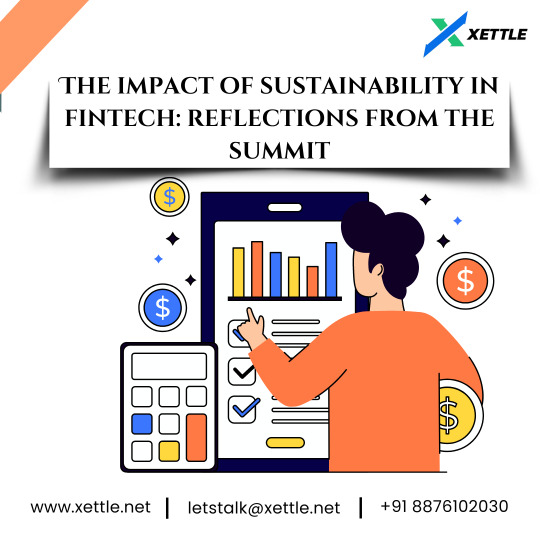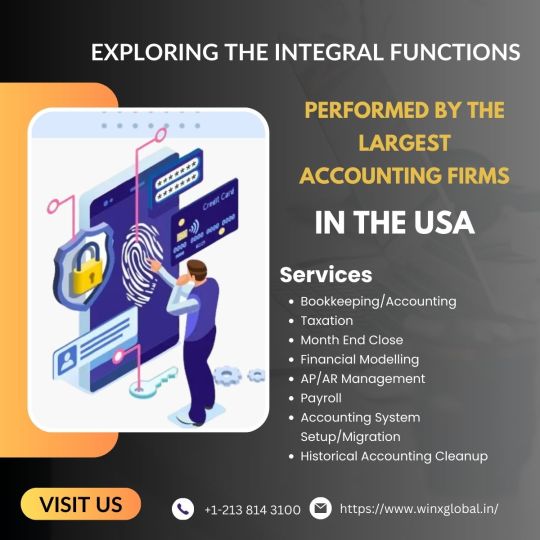#ESG Analytics Solutions
Text
Learn how ESG Analytics transforms sustainable investment and enables investors to make wise choices. Learn how to evaluate a company's impact using environmental, social, and governance (ESG) aspects, and gain practical knowledge on gathering, combining, and analyzing data. Read this insightful article to learn more about ESG analytics and its function in promoting change.
#ESG Analytics#ESG Data Analytics#ESG Data Analysis#ESG Data and Analytics#ESG Analytics Company#ESG Analytics Services#ESG Analytics Solutions
1 note
·
View note
Text
Unlocking the Value of ESG Data: How Analytics Drives Responsible Investing
The importance of environmental, social, and governance data cannot be underscored in the present dynamic industry. Eco-friendly, societal, and management concerns are becoming the focus. The era of evaluating achievement solely through the fiscal soundness of a company is a thing of the past. Increasingly individuals are being mindful of the effect of businesses on nature and the world. Also, people focused on the way companies treat their personnel and how they oversee their conduct ethically.
The rise of Environmental, Social, and Governance data as a beneficial source has empowered organizations to enhance their ability to observe, communicate, and enhance their accountable and green activities. Consequently, companies now have the capacity to make decisions with greater information and implement strategies that support environmentally friendly approaches.
ESG Data has developed into a guide that shows the path for modern companies to enhance resilience, intention-driven, and inclusiveness. This clarifies the reason it has turned into a key ingredient in the business world in the contemporary era.
The elements of ESG in business processes can be improved in comprehension through the use of ESG data. In this manner, the sustainability of a company, ethical business practices, and the generation of sustainable value might be judged by stockholders, involved parties, and ESG assessment agencies. Nevertheless, it's crucial to observe that such assessments might differ based on the particular standards and methods implemented by all involved.
Investors can improve their decision-making, mitigate risk, and locate firms that have similar values and devotion to sustainability. If they consider ESG data in mind, it has the potential to assist them in accomplishing the desired objectives. Consequently, it is expected that numerous financial institutions are pulling funds from corporations that neglect ESG guidelines.

Importance of ESG Data in Responsible Investing
ESG functions as a valuation technique that takes into account environmental, social, and governance issues. An ESG assessment identifies a company's risks and practices based on environmental, social, and governance criteria.
As a result of ESG frameworks, sustainable investing can help individuals or organizations determine whether a company's values are aligned with their own and analyze the ultimate worth of companies.
Over the past two years, several governmental bodies have enacted new laws requiring corporations to report ESG metrics, and many countries have updated their environmental and social disclosure regulations.
Companies are thus facing pressure from investors to enhance their transparency and performance on the ESG data and analytics front. Yet, most businesses are not able to meet these requirements. They do not have automated solutions for across-the-board compliance tracking and management.
Understanding ESG Analytics and Its Impact on Investment Decisions

Ecological factors, as part of ESG analysis, examine the impact of a company has an effect on the surroundings. The foundation examines the carbon footprint, waste minimization, and control, which involve sustainability policies and actions. The influence of the company on the public is the theme of social examination. The examination includes evaluating the firm's workforce policies and processes. Moreover, it encompasses assessing its human rights performance, public relations, and initiatives promoting diversity and inclusion.
An analysis of the company's governance reviews the company's administration and the processes of making decisions. This consists of operational visibility, the performance of its board of directors, and broader corporate culture. This element of Environmental, Social, and Governance analysis is essential for examining the business's prosperity in the long run and steadiness.
Investors utilize Environmental, Social, and Governance analysis to find businesses that uphold sustainability and responsible business practices. Such an examination can help investors in making better-informed investment picks. This can additionally assist individuals in aligning their belongings according to their principles and pursuits. Environmental, social, and governance analysis can also assist companies to spot areas for improvement and keep tabs on their development.
Sustainability analysis has become more significant in recent years as stakeholders have become more concerned about the corporate influence on society and the environment. Consequently, organizations are currently dealing with more intense stress to provide transparency on their ESG initiatives and showcase their dedication to sustainable practices. Consequently, numerous companies started to consider environmental, social, and governance analysis seriously. The company is adopting measures and frameworks to boost its ESG outcomes.
Environmental, Social, and Governance analysis presents a thorough and diverse approach to analyzing a company’s effect on the ecological system, the community, and its interested parties. This offers a complete understanding of a company's sustainability initiatives and assists investors in making informed selections.

Sustainable investment analysis will become more and more important for financial backers, corporations, and related individuals as the relevance of sustainable practices and business ethics develops. With the global gains of a deeper understanding regarding the ecological and societal effects within the corporate sector, the call for it will grow for openness and responsibility.
The Role of Advanced Analytics in ESG Investing Strategies
Sustainable investing has earned significant interest lately among investors, customers, and regulators, growing more concerned regarding the social and environmental effects of corporations. Sustainable investment analysis carefully evaluates the influence of a company among different stakeholders, taking into account the natural surroundings, local communities, and investors.
A major advantage of environmental, social, and governance analysis allows investors to create well-informed investment determinations. Traders can gain a deeper understanding of potential hazards and chances of an individual investment by giving thought to the ESG performance of a corporation. These can offer valuable perspectives regarding the company's ESG practices, supporting investors in making well-informed determinations. As an illustration, organizations with robust ESG practices are frequently regarded as having lower risk and could potentially provide greater long-term investment returns.

Moreover, there is a possibility that it also entices more socially responsible potential investors. Yet another crucial advantage of environmental, social, and governance research is that it fosters company ethics and sustainable practices. Through concentration on the influence an organization possesses within the community as well as the surroundings, Environmental, Social, and Governance research assists organizations in recognising prospects for advancement. Additionally, it allows them to exert themselves to resolve these matters. Thus, it contributes to an environmentally friendly future and guarantees that businesses conduct themselves morally and with responsibility.
Sustainable investing additionally aids businesses in overseeing perception risk. For instance, organizations that are identified as having social and environmental responsibility maintain a strong image. These can result in greater brand retention of loyal customers and satisfaction and overall achievement in the industry. In conclusion, Sustainability analysis has the potential to assist businesses in improving the extent of honesty and social consciousness.
By offering investors and interested parties a comprehensive view of the ESG performance of a company, ESG assessment boosts the trust of the corporate world that the firm is functioning towards the greatest advantages of each interested party. Ultimately, this causes enhanced decision-making and business practices that are environmentally friendly.
Also Read - Driving Sustainable Innovations: AI for ESG Data Challenges.
Conclusion
ESG data has become an essential tool in the modern economy. It enables companies to measure their sustainability efforts, manage risks and meet stakeholder expectations. The importance of ESG data lies in its ability to drive responsible business practices, improve decision-making and drive long-term value creation.
However, the lack of standardized ESG data remains a major challenge that needs to be addressed to ensure accurate and comparable valuations. As ESG reporting frameworks evolve and regulatory initiatives such as the CSRD gain more attention, the future will see more consistent, transparent, and credible reporting that promotes a sustainable and responsible corporate environment. High ESG data is promised.

Building a Greener and Sustainable Future
Before 2023, accountability was seen as pleasant, but that's starting to change. The epidemic refocused attention on sustainability and clean energy. Sustainability, previously an overarching issue, is now a key focus for every company. This presents a unique chance for businesses to evaluate their current state and consider how they could reduce their carbon footprint in the near and far future.
There is an increasing effort by companies of all kinds to combat the effects of climate change. They no longer include it in the brand's mission statement, but it has become a unifying notion that drives them to carry out essential tasks.
Companies are developing brand-new, long-term plans. They are working to lessen their environmental impact by using cutting-edge machinery. This allows them to protect their worker's interests while maintaining open communication. By 2023, brands that must put sustainability first will have already lost the race.
With a presence in New York, San Francisco, Austin, Seattle, Toronto, London, Zurich, Pune, Bengaluru, and Hyderabad, SG Analytics, a pioneer in Research and Analytics, offers tailor-made services to enterprises worldwide.
SG Analytics (SGA), an industry leader in ESG data solutions, serves the world's largest rating agencies, data platforms, and capital market players. We are highly skilled in managing data across a wide range of ESG frameworks, standards, and themes. Our tailored ESG data solutions include ESG aggregation, cleaning, and validation across 1,500+ ESG indicators from various sources, assisting in developing insightful information that facilitates well-informed decision-making.
Furthermore, At SGA, we specialize in providing organizations with the tools and insights needed to navigate the complex landscape of sustainable and responsible business practices. Our ESG analytics services offer a deep understanding of ESG factors and their impact on business performance. With advanced analytics techniques and industry-specific expertise, we transform raw ESG data into actionable insights that drive informed decision-making.
0 notes
Text
The impact of sustainability in fintech: reflections from the summit

In recent years, the Fintech industry has witnessed a paradigm shift towards sustainability, with an increasing emphasis on integrating environmental, social, and governance (ESG) factors into financial decision-making processes. This transformative trend took center stage at the latest Fintech Summit, where industry leaders converged to explore the intersection of sustainability and financial technology. Among the prominent voices shaping this discourse was Xettle Technologies, a trailblazer in Fintech software solutions, whose commitment to sustainability is driving innovation and reshaping the future of finance.
Against the backdrop of global challenges such as climate change, resource depletion, and social inequality, the imperative for sustainable finance has never been greater. The Fintech Summit provided a platform for thought leaders to reflect on the role of technology in advancing sustainability goals and fostering a more resilient and equitable financial ecosystem.
At the heart of the discussions was the recognition that sustainability is not just a moral imperative but also a strategic imperative for Fintech firms. By integrating ESG considerations into their operations, products, and services, Fintech companies can mitigate risks, enhance resilience, and unlock new opportunities for growth and value creation. Xettle Technologies’ representatives underscored the company’s commitment to sustainability, highlighting how it is embedded in the company’s culture, innovation agenda, and business strategy.
One of the key themes that emerged from the summit was the role of Fintech in driving sustainable investment. Through innovative solutions such as green bonds, impact investing platforms, and ESG scoring algorithms, Fintech firms are empowering investors to allocate capital towards environmentally and socially responsible projects and companies. Xettle Technologies showcased its suite of Fintech software solutions designed to facilitate sustainable investing, enabling financial institutions and investors to align their portfolios with their values and sustainability objectives.
Moreover, the summit explored the transformative potential of blockchain technology in advancing sustainability goals. By enhancing transparency, traceability, and accountability in supply chains, blockchain can help address issues such as deforestation, forced labor, and conflict minerals. Xettle Technologies’ experts elaborated on the company’s blockchain-based solutions for supply chain finance and sustainability reporting, emphasizing their role in promoting ethical sourcing, responsible production, and fair labor practices.
In addition to sustainable investing and supply chain transparency, the summit delved into the role of Fintech in promoting financial inclusion and resilience. By leveraging technology and data analytics, Fintech firms can expand access to financial services for underserved populations, empower small and medium-sized enterprises (SMEs), and build more inclusive and resilient communities. Xettle Technologies’ representatives shared insights into the company’s initiatives to support financial inclusion through digital payments, microfinance, and alternative credit scoring models.
Furthermore, the summit highlighted the importance of collaboration and partnership in advancing sustainability goals. Recognizing the interconnected nature of sustainability challenges, participants underscored the need for cross-sectoral collaboration between Fintech firms, financial institutions, governments, civil society, and academia. Xettle Technologies reiterated its commitment to collaboration, emphasizing its partnerships with industry stakeholders to drive collective action and scale impact.
Looking ahead, the future of sustainability in Fintech appears promising yet complex. As Fintech firms continue to innovate and disrupt traditional financial systems, they must prioritize sustainability as a core principle and driver of value creation. Xettle Technologies’ visionaries reiterated their commitment to sustainability, pledging to harness the power of technology to build a more sustainable, inclusive, and resilient financial ecosystem for future generations.
In conclusion, the Fintech Summit served as a catalyst for reflection and action on the role of sustainability in shaping the future of finance. From sustainable investing and supply chain transparency to financial inclusion and resilience, Fintech has the potential to drive positive change and advance sustainability goals on a global scale. Xettle Technologies’ leadership in integrating sustainability into its Fintech solutions exemplifies its dedication to driving innovation and creating shared value for society and the planet. As the industry continues to evolve, collaboration, innovation, and sustainability will be key drivers of success in building a more sustainable and resilient financial future.
2 notes
·
View notes
Text
Overview of WL COMPANY DMCC financial marketplace
The company we want to talk about today is called WL COMPANY DMCC. WL Company DMCC (License Number DMCC-89711, Registration Number DMCC19716, Account Number 411911), registered in Dubai, UAE whose registered office is Unit No BA95, DMCC Business Centre, Level No 1, represented by the Director, Stephanie Sandilands.
DMCC is the largest free trade zone in the United Arab Emirates, which is located in Dubai. It was established in 2002 and now serves as a commodity exchange that operates in four sectors: precious goods; energy; steel and metals; agricultural products.
Main services and activities
WL COMPANY DMCC is a financial marketplace, the direction of which is financial services, consulting, management, analysis of services, provision of services by third parties to the end user. The list also includes:
• Investment ideas;
• Active product trading;
• Analytical support for traders;
• Selection of an investment strategy in the market using various assets.
WL COMPANY DMCC operates on the MetaTrader 5 trading platform. There is a convenient registration, detailed instructions, as well as the ability to connect a demo account for self-study.
Among the main services:
1. Trading.
2. Social Services.
3.ESG Investment.
4. Analytics.
5. Wealth management.
Company managers will help with registration, with opening an account, with access to the platform. After training (if required), you can make a minimum deposit of 500 USD and start trading.
Main advantages and disadvantages of WL COMPANY DMCC
Before going directly to the benefits of the marketplace, it is worth saying a few words about the loyalty program. Depending on the amount of investment, the user receives one of three grades. Each of them gives certain privileges. The program itself makes it possible to get the maximum effect from investments in a short time.
Now about the benefits of WL COMPANY DMCC:
1. Availability of a license in the jurisdiction of the DMCC trading zone.
2. No commission when making SFD transactions on shares.
3. More than 6700 trading instruments.
4. High professional level of support.
5. Very strong analytical support (client confidence level 87%).
6. Weekly comments and summaries from WL COMPANY experts.
7. Modern analysis software.
8. Large selection of investment solutions.
9. Own exclusive market analysis services in various areas.
10. Own analytical department with the publication of materials in the public domain.
11. Modern focus on social services.
The feedback from WL COMPANY DMCC clients highlights the positive characteristics of the work of marketplace analysts, the convenience of a personal account, the speed of processing positions, analysis tools, and low commissions.
Negative reviews relate to the freezing of the system, delays in withdrawing funds for a day, and the small age of the company. Also, for some users, the application for withdrawal of funds was not processed the first time, and someone could not instantly replenish the deposit. North American traders complain that WL COMPANY DMCC only has a presence in Dubai.
At the same time, the financial group received several significant awards:
• Best MetaTrader 5 Broker 2022
• The Most Reliable Fintech Service 2023
Outcome
According to the information received, it can be concluded that WL COMPANY DMCC can be called a good financial marketplace in the modern market. By registering with the DMCC, the company can be called reliable and trustworthy. There are also negative reviews, but they relate mainly to the technical component.
For August, 2023 WL COMPANY DMCC has about 12000 clients worldwide. The main regions are North America, Europe and the Commonwealth of Independent States. Traders can act independently or use the advice of marketplace experts.

8 notes
·
View notes
Text
Unravelling Audit Trends: A Guide for Accountants and Auditors in Dubai
Welcome, accountants and auditors in Dubai, to an insightful exploration of the latest audit trends shaping our vibrant industry landscape. In this guide, we'll delve into key trends, technological advancements, regulatory shifts, and best practices that are essential for your success in Dubai's dynamic financial sector.
Regulatory Updates: Stay ahead of the game by keeping abreast of the latest regulatory changes in Dubai. From updates in financial reporting standards to compliance requirements, understanding and adapting to these changes is crucial for ensuring accurate and compliant audits.
Technology Integration: Embrace the power of technology to enhance your audit processes. AI-driven analytics, cloud-based platforms, and automation tools can streamline auditing tasks, improve accuracy, and provide deeper insights into financial data, ultimately saving time and resources.
Best Practices: Elevate your audit game with best practices focused on risk assessment, internal control evaluation, and fraud detection. Proactive measures and robust strategies in these areas can strengthen audit outcomes, instill client trust, and mitigate risks effectively.
Sustainability Reporting: With sustainability gaining prominence, auditors in Dubai play a pivotal role in verifying and enhancing the credibility of sustainability reports. Incorporating ESG factors into audits is becoming increasingly important, reflecting the growing emphasis on corporate responsibility.
Blockchain Revolution: Explore the potential of blockchain technology in auditing. Its features such as enhanced data security, transparency, and immutability are transforming audit trails and ensuring the integrity of financial information, offering auditors innovative solutions to improve audit efficiency and reliability.
Future Outlook: The future of auditing in Dubai is promising for those who embrace change and innovation. Continuous learning, upskilling in technology, and maintaining compliance with evolving standards will be key drivers of success in the ever-evolving audit landscape.
By staying informed, leveraging technology, adopting best practices, and embracing innovation, accountants and auditors in Dubai can navigate through challenges, deliver value-added services, and drive excellence in auditing practices, cementing their position as trusted financial advisors in the region.
#DubaiAuditors#AuditTrends#AccountantsInDubai#RegulatoryChanges#TechIntegration#BestAuditPractices#SustainabilityReporting#BlockchainAuditing#FutureOfAuditing#FinancialCompliance#ESGStandards#AuditInnovation#AuditTech#DubaiFinance#AuditInsights#dubaibusiness#business strategy#uaebusiness
2 notes
·
View notes
Text
Avaya Partner Locator Find Companions And Resellers
Agora, a New York and Tel Aviv-based SaaS company for actual estate firms, raised $20 million in Series A funding. Sales Agents Transition customers to the cloud quick and on finances, supported by Avaya companies and options. sap vc course uk is a world chief within the delivery of offshore tasks and services for the vitality trade. Subsea7 makes offshore energy transition attainable via the continual evolution of lower-carbon oil and gasoline and by enabling the expansion of renewables and rising power. We create sustainable worth by delivering the offshore energy transition solutions the world needs, for right now and tomorrow. VU lecturers are so partaking, encouraging and supportive of my studying and so they actually listen to students’ contributions.
youtube
MIRB explores whether and how the adoption of Responsible Business practices by firms, in affiliation with the mixing of ESG elements by buyers, may be an effective method to tackle these international challenges. Despite highlighting the importance of making value for society, the course also stresses the criticality of companies producing profits. Indeed, one of many punchlines is that an method to enterprise based on responsibility can be more profitable than one centered on shareholder worth.
Strategy And Entrepreneurship At London Business School
Transform handbook duties and mundane work into digital workflows. Modernize with RPA and combine fashionable instruments enterprise-wide to increase output and business outcomes. Automate service operations to boost productiveness and provides employees a superior work experience.
Customer Experience Deliver effortless experiences for purchasers and employees at every touchpoint. Avaya OneCloud UCaaS Serve prospects higher with worker experiences that boost productiveness and collaboration. Join us at Birmingham City University for the final SAP Start-up Focus event of 2014.
Her analysis also focuses on anti-competitive motivations for technology acquisitions.
Features Silverfin Structured Data Hub The single secure cloud hub for all consumer data.
Silverfin Workflows Automated key accounting workflows together with accounts production, working papers and company tax.
Streamline your response with machine studying and superior analytics.
GoLogica presents SAP VC Training is helpful to have a chance that you've got in depth number to combine of components that go into a product.
The goal is that can help you perceive what kind of knowledge and analytical techniques are more appropriate for every downside, in addition to to train you in a considerate analysis of the proof required to make sound selections. Gain perception into the character of company – versus enterprise – strategy. Many companies are not single companies but 'groups', comprising a portfolio of kind of separate enterprise units and one or more levels of 'company' administration. First, she research the the interaction between technology technique and human capital technique, inspecting how know-how adoption selections and outcomes are formed by how corporations construction and handle key human capital relationships. She was named a finalist for the Academy of Management Strategic Management Division’s Outstanding Dissertation Award for her work on this space exploring know-how adoption in hospitals.
The Key Of Success Is Connected Accounting
Make it easier for employees to get what they want, when they need it. Embed intelligence into every interplay to deliver experiences that break down silos and unlock productivity. Discover new methods to remodel the world of work and inspire innovation. Get the assist and tools you want for every step of your improve journey.

Fractional, a New York-based NFT trading platform, raised $20 million in Series A funding. There are clearly “different approaches to the final concept,” notes O’Malley; simply have a glance at startups like Neumann’s Flow or Arrived, aimed toward tackling very different issues. Resources are included for a comprehensive learning expertise. Dar es Salaam is the biggest and richest metropolis in Tanzania and is taken into account the financial central of the area.
New technologies within the Now Platform Tokyo release assist organizations drive business transformation amid a complex macro setting. Discover simple ways to show challenging times into new paths to innovation. See how companies like yours make the most out of their ServiceNow funding. Explore instruments and assets to drive business outcomes and achieve success quicker.
Streamline your response with machine learning and advanced analytics. Embed risk-informed selections into day by day work across the enterprise for improved business resilience. Provide resilient companies that increase productivity and create wonderful experiences wherever your staff work. Quickly scale across the enterprise to create intuitive, connected experiences users love.
2 notes
·
View notes
Text
Global Financial Planning Software Market Report 2024-2033
Overview and Scope
Financial planning software is a system that offers businesses the ability to control their overall financial management, estimating, and budgeting procedures. Financial Planning Software is used to support analytics, modeling, collaboration, and performance-reporting features, all of which are utilized to improve a user’s capacity to manage financial performance efficiently.
Sizing and Forecast
The financial planning software market size has grown rapidly in recent years. It will grow from $4.26 billion in 2023 to $5.02 billion in 2024 at a compound annual growth rate (CAGR) of 17.9%. The growth in the historic period can be attributed to demographic shifts, globalization of markets, data security concerns, changing consumer behavior, integration with other systems, market volatility..

The financial planning software market size is expected to see rapid growth in the next few years. It will grow to $9.29 billion in 2028 at a compound annual growth rate (CAGR) of 16.6%. The growth in the forecast period can be attributed to economic recovery, financial literacy initiatives, focus on esg investing, subscription-based models, enhanced cybersecurity measures, regulatory compliance solutions.. Major trends in the forecast period include ai and machine learning integration, robo-advisors, blockchain integration, collaboration with fintech startups, cloud-based solutions, user-friendly interfaces..
Segmentation & Regional Insights
The financial planning software market covered in this report is segmented –
1) By Component: Solution, Services
2) By Deployment Mode: On-Premises, Cloud
3) By Application: Financial Advice And Management, Portfolio, Accounting And Trading Management, Wealth Management, Personal Banking, Other Applications
4) By End-Uses: Small And Medium-Sized Enterprises (SMEs), Large Enterprises, Individual Purpose, Other End-Uses
North America was the largest region in the financial planning software market in 2023. The regions covered in the financial planning software market report are Asia-Pacific, Western Europe, Eastern Europe, North America, South America, Middle East, Africa
Major Driver Impacting Market Growth
The surge in mobile applications across the globe is expected to propel the growth of the financial planning software market going forward. Mobile application refers to the application software created specifically for mobile devices such as smartphones and tablets. Many financial planning apps on the market assist investors to keep track of their expenditures and revenue, creating budgets, and more, enabling professionals to manage clients’ assets and conduct other research with knowledge. Hence, surge in mobile applications across the globe will propel the market growth. For instance, in January 2021, according to the data published by Trulist, a US-based, web and software development, technology company, 2021, the total number of mobile applications downloaded worldwide reached several 230 billion, however, the google play app, as well as game downloads, increased by 2.5% in 2021. Therefore, the surge in mobile applications across the globe is driving the growth of the financial planning software market, going forward.
Key Industry Players
Major companies operating in the financial planning software market report are PIEtech Inc., eMoney Advisor LLC, Advicent Solutions, Moneytree Software, WealthTec LLC, Advisor Software, Envestnet Inc., InStream LLC, Advizr Inc., RightCapital Inc., Razor Logic Systems, Futurewise Technologies Private Limited., ESPlanner Inc., iSoftware Limited, Cheshire Software Inc., MoneyGuide Inc., Miles Software, Orion Advisor Technology, Personal Capital Corporation, Quicken Inc., SAP SE, Oltis Software, WealthTrace, Moneywise Software, Prevero GmbH, Sigma Conso, GetRealList, Wealth Access .
The financial planning software market report table of contents includes:
1. Executive Summary
2. Financial Planning Software Market Characteristics
3. Financial Planning Software Market Trends And Strategies
4. Financial Planning Software Market — Macro Economic Scenario
5. Global Financial Planning Software Market Size and Growth
.
.
.
31. Global Financial Planning Software Market Competitive Benchmarking
32. Global Financial Planning Software Market Competitive Dashboard
33. Key Mergers And Acquisitions In The Financial Planning Software Market
34. Financial Planning Software Market Future Outlook and Potential Analysis
35. Appendix
Explore the trending research reports from TBRC:
Contact Us:
The Business Research Company
Europe: +44 207 1930 708
Asia: +91 88972 63534
Americas: +1 315 623 0293
0 notes
Text
Sustainable Fintech: Green Finance and Ethical Investing

As the world becomes increasingly conscious of environmental and social issues, the financial industry is undergoing a significant transformation. Sustainable finance and ethical investing are gaining momentum, driven by the need to address climate change, social inequality, and corporate governance. Fintech, with its innovative technologies and agile approach, is playing a pivotal role in supporting these trends. This blog explores how fintech is revolutionizing sustainable finance and ethical investing, and examines the broader impact of these developments on the financial industry.
The Rise of Sustainable Finance
Sustainable finance refers to financial activities that consider environmental, social, and governance (ESG) criteria to promote long-term sustainability and responsible investment. This approach aims to create value not only for investors but also for society and the environment.
Key Drivers of Sustainable Finance
Climate Change Awareness: Increasing awareness of climate change and its impacts has led to a demand for investments that support environmental sustainability.
Regulatory Pressure: Governments and regulatory bodies are implementing policies to encourage sustainable finance and penalize unsustainable practices.
Consumer Demand: Investors, especially millennials, are prioritizing ethical and sustainable investments, pushing financial institutions to adapt.
Fintech's Role in Green Finance
Fintech companies are at the forefront of the green finance revolution, leveraging technology to create innovative solutions that promote sustainability. Here are some ways fintech is driving green finance:
1. Green Bonds and Crowdfunding Platforms
Green bonds are debt instruments used to finance projects with environmental benefits. Fintech platforms are facilitating the issuance and trading of green bonds, making it easier for investors to support sustainable projects.
Example:
Neighborly: A fintech platform that connects investors with green municipal bond projects, allowing communities to fund sustainable infrastructure.
2. Digital Platforms for Ethical Investing
Fintech platforms are democratizing access to ethical investing by providing user-friendly interfaces and data-driven insights. These platforms allow investors to align their portfolios with their values.
Example:
OpenInvest: A platform that offers personalized, socially responsible investment portfolios, enabling users to invest in companies that align with their ethical values.
3. Blockchain for Transparency and Accountability
Blockchain technology enhances transparency and accountability in sustainable finance by providing immutable records of transactions and supply chains. This ensures that funds are used as intended and promotes trust among investors.
Example:
Everledger: A blockchain-based platform that tracks the provenance of diamonds and other assets, ensuring ethical sourcing and transparency.
4. AI and Big Data for ESG Analysis
Artificial intelligence (AI) and big data analytics enable fintech companies to analyze vast amounts of data and assess the ESG performance of companies. This helps investors make informed decisions based on reliable and comprehensive information.
Example:
Arabesque S-Ray: An AI-powered tool that evaluates the sustainability performance of companies based on ESG metrics, providing insights for ethical investing.
The Impact of Ethical Investing
Ethical investing, also known as socially responsible investing (SRI), involves choosing investments based on ethical and moral criteria. This approach not only aims for financial returns but also seeks to generate positive social and environmental outcomes.
Benefits of Ethical Investing
Positive Impact: Investors can support companies and projects that contribute to societal well-being and environmental sustainability.
Risk Mitigation: Companies with strong ESG practices are often more resilient to risks, making them attractive long-term investments.
Market Growth: The growing demand for ethical investments is driving innovation and expanding market opportunities for fintech companies.
Challenges and Opportunities
While sustainable fintech presents significant opportunities, it also faces challenges that need to be addressed to realize its full potential:
1. Standardization of ESG Metrics
The lack of standardized ESG metrics makes it difficult to compare the sustainability performance of different companies. Developing common standards and frameworks is essential for consistent and reliable ESG assessment.
2. Greenwashing Concerns
Greenwashing, where companies falsely portray themselves as environmentally friendly, can undermine investor trust. Fintech companies must ensure transparency and authenticity in their sustainability claims.
3. Regulatory Compliance
Navigating the complex regulatory landscape of sustainable finance requires fintech companies to stay abreast of evolving policies and ensure compliance with international standards.
4. Technological Integration
Integrating advanced technologies like AI, blockchain, and big data analytics into traditional financial systems requires significant investment and expertise. Fintech companies need to collaborate with financial institutions to achieve seamless integration.
The Future of Sustainable Fintech
The future of sustainable fintech looks promising, with continued innovation and collaboration driving growth and impact. Here are some trends to watch:
1. Increased Adoption of Green Digital Banking
Digital banks that prioritize sustainability, such as offering eco-friendly banking products and investing in green projects, are likely to gain traction.
2. Expansion of Impact Investing
Impact investing, which seeks to generate measurable social and environmental impact alongside financial returns, will continue to grow, supported by fintech innovations.
3. Development of Sustainable Finance Standards
The establishment of global standards and frameworks for sustainable finance will enhance transparency and accountability, fostering greater investor confidence.
4. Integration of ESG into Mainstream Finance
As ESG considerations become integral to investment strategies, traditional financial institutions will increasingly adopt fintech solutions to support sustainable finance.
Conclusion
Sustainable fintech is transforming the financial industry by promoting green finance and ethical investing. Through innovative technologies and solutions, fintech companies are making it easier for investors to support sustainable and socially responsible initiatives. While challenges remain, the potential for positive impact is immense. By continuing to innovate and collaborate, fintech can play a crucial role in advancing sustainable finance and creating a more inclusive and equitable financial system.
#sustainable fintech#green finance#ethical investing#ESG#blockchain#AI in fintech#ethical investments#fintech innovations#sustainable finance#impact investing
1 note
·
View note
Text
Adapting to Change: Evolution of Enterprise Risk Management in 2025
Revolution is a constant in the frantic pace of commerce. For businesses to effectively deal with the hazards the demands of modern society, enterprise risk administration, or ERP systems, have developed become a crucial instrument especially as we reach the year 2025.
Enterprise Risk Management (ERM) provides a vital buffer against unpredictability in the dynamic corporate world. To keep up with the quick speed of change and new risks, ERM must continue to evolve as we approach 2025. Examining the benefits and drawbacks of ERM's development in 2025, we shed light on how transformative ERM has been for businesses and how they are successfully embracing change.
1. Embracing Technology:
Managing risks becomes merely one among the multiple company areas in which technology is going to continue to impact in 2025. Companies are using cutting-edge innovations, including advanced information machine learning, analytics, or algorithms for artificial intelligence, to identify, assess, and mitigate threats immediately. Effective strategy or anticipatory choices are rendered probable via the application of models of predictive analytics to foresee potential hazards and opportunities.
2. Integrated Approach:
Risk management procedures that were isolated are obsolete. By removing departmental boundaries and encouraging cooperation at all levels, companies are embracing a comprehensive and integrated approach to ERM in 2025. Comprehensive knowledge of interrelated risks and their potential influence on the entire company ecosystem is made possible by this integrated approach. Companies can optimally allocate resources and promote sustainable growth by connecting risk management with strategic objectives.
3. Agile Resilience:
Durability in the uncertain environment that we live in now involves more than just surviving difficulties; it additionally includes flourishing despite an environment of constant uncertainty. Agility risk administration systems have grown increasingly common due to empower companies to react quickly to changing conditions while taking benefit of fresh possibilities. Companies that adopt flexibility might preemptively identify and tackle risks, turning potential disruptions into advantageous competitive edge.
4. Cybersecurity Imperative:
According to the recent spike in security threats, privacy and security have evolved into an essential priority of companies anywhere in this globe. In 2025, technology resilience will be allocated greater importance in ERM campaigns as a result of the recognition of the connection between overall business resilience and digital security. Strong cybersecurity barriers, including incident response procedures, proactive monitoring, and threat intelligence, are essential parts of contemporary risk management systems.
5. Environmental and Social Risks:
The risk environment that businesses face is changing due to the increased consciousness of social responsibility and environmental sustainability. In 2025, disruptions to the supply chain, political instability, or global warming are going to feature in a broader spectrum of all hazards that ERM methods will encompass. To mitigate brand and financial dangers, businesses are including environmental, social, and governance (ESG) elements in their risk evaluations. This enables businesses to more closely match their company's activities with ethical and environmentally friendly norms.
6. Regulatory Compliance:
Risk of compliance appears to rank as an important problem regarding businesses as they wrestle with shifting governmental demands and enhanced oversight. With implementing technological regulatory technology (Reg Tech) solutions to simplify protocols that maintain submitting towards difficult regulatory structures, approaches to ERM in 2025 will be focused upon continuous compliance administration. Companies may mitigate legal liabilities while safeguarding their image through an anticipatory approach toward regulation.
7. Cultural Transformation:
Responsibility, open communication, plus ethical actions constitute the fundamental components of a profitable risk administration strategy. 2025: As a key component of Enterprise Risk Management, companies are giving priority to cultural transformation. Enterprises can enable personnel to identify and handle risks proactively by cultivating a risk-aware culture from the top management down to the front-line staff. Companies cultivate a culture that welcomes change and innovation while respecting moral principles by providing incentives, training, and communication.

Merits:
Proactive Risk Mitigation: Assuring business resilience, ERM evolution permits proactive risk detection and mitigation before their escalation.
Integration with Strategy: Through integrated ERM, resource allocation and decision-making are enhanced by matching risk management techniques with strategic goals.
Technological Advancements: Using technology to its full potential allows for more accurate risk assessments as well as real-time monitoring, which facilitates quick reactions to new threats.
Cultural Transformation: Employees who are empowered to actively participate in risk management initiatives are cultivated by ERM evolution, which promotes a culture of risk awareness.
Compliance Enhancement: By assuring regulatory adherence and reducing legal risks, enhanced ERM frameworks enable proactive compliance management.
Demerits:
Complexity: A substantial investment in training and resources may be necessary as evolving ERM frameworks bring complexity.
Cybersecurity Challenges: As a result of our growing reliance on technology, ERM progress reduces cyber threats but also makes cybersecurity more difficult.
Resistance to Change: New ERM techniques may encounter pushback from businesses undergoing cultural transition.
Regulatory Burden: ERM strategies must be continuously monitored and adjusted to comply with the challenges posed by increasing legislation.
Resource Constraints: The adoption of sophisticated ERM procedures could put a burden on companies' resources, especially for smaller businesses.
While proactive risk management and increased corporate resilience are the key benefits of the evolution of ERM in 2025, it also comes with a variety of limitations, including complexity, cybersecurity concerns, and cultural resistance. For optimal use of ERM in a constantly evolving business environment, companies must skillfully balance these positive and negative aspects.
Conclusion:
Enterprise Risk Management has to evolve if we are to have resilient and sustainable growth as we manage the complexity of today's corporate environment. Through the adoption of an integrated approach, technology adoption, agility cultivation, and a focus on cybersecurity, environmental, and social risks, companies can proactively reduce dangers and leverage possibilities. Led by the concepts of resilience, flexibility, and strategic foresight, the ERM journey will continue as we move closer to 2025 and beyond.
To sum up, enterprise risk management is evolving in 2025 in a proactive, integrated way that effectively navigates the uncertainties of the modern world by integrating technology, agility, and cultural transformation.
isorobot is an enterprise management solution that will help you automate all the processes to keep ahead of the competition. isorobot has every solution you need to run your business effectively, which includes GRC (Governance, Risk, and Compliance) (Governance, Risk, and Compliance), ERM (Enterprise Risk Management) Health, safety, and quality management, ESG (Environmental, Social, and Governance) (Environmental, Social and Governance) (Environmental, Social, and Governance), etc. We have worked with businesses across a variety of sectors, including manufacturing, healthcare, technology, and more. We provide a range of services, such as strategy formulation, operational improvement, change management, and more. Our group of experts is prepared to assist you in reaching your professional objectives.
email us at: [email protected]
#grc software#internalaudit#grc software solution#isorobot#risk management#cybersecuritymanagement#esg
0 notes
Text
Our ESG data analytics services are customized to suit your organization's specific goals and requirements. We provide tailored solutions that deliver meaningful and practical insights, enabling you to make informed decisions regarding environmental, social, and governance aspects. With our expertise, you can leverage relevant data to drive positive change and address sustainability challenges effectively.
#ESG Analytics#ESG Data Analytics#ESG Data and Analytics#ESG Data Analysis#ESG Analytics Services#ESG Analytics Solutions
1 note
·
View note
Text
Exploring the Integral Functions Performed by the Largest Accounting Firms in the USA

In the complex landscape of modern business, accounting firms play a pivotal role in ensuring financial integrity, compliance, and strategic decision-making for organizations across various industries. Among them, the largest accounting firms in the USA stand out not only for their size but also for the breadth and depth of services they offer. Let us delve into the multifaceted functions performed by these industry giants.
Audit and Assurance Services:
At the core of accounting firms' functions lie audit and assurance services. These involve examining financial statements, internal controls, and operational processes to provide stakeholders with confidence in the accuracy and reliability of financial information. The biggest accounting firms in the US deploy teams of experienced auditors to conduct thorough assessments, ensuring compliance with regulatory standards and identifying areas for improvement.
Tax Advisory and Compliance:
With the ever-evolving tax landscape, businesses rely on accounting firms for expert tax advisory services. These firms assist clients in navigating complex tax regulations, optimizing tax strategies, and ensuring compliance with local, state, and federal tax laws. From tax planning to preparation and representation in tax disputes, the expertise of the largest accounting firms in America proves invaluable in minimizing tax liabilities and maximizing financial efficiency.
Financial Advisory and Consulting:
Top accounting firms in the US offer a spectrum of financial advisory and consulting services tailored to the diverse needs of businesses. This includes financial restructuring, mergers and acquisitions (M&A) advisory, valuation services, forensic accounting, and risk management. By leveraging their analytical prowess and industry insights, these firms help clients make informed decisions, mitigate risks, and unlock opportunities for growth and sustainability.
Technology and Innovation Solutions:
In the digital age, accounting firms are at the forefront of integrating technology into their service offerings. They provide innovative solutions such as cloud-based accounting platforms, data analytics, robotic process automation (RPA), and blockchain technologies to streamline financial processes, enhance data security, and drive operational efficiency. By embracing technological advancements, these firms empower clients to adapt to rapidly changing business environments.
Regulatory Compliance and Corporate Governance:
Compliance with regulatory requirements and adherence to sound corporate governance principles are paramount for organizations seeking to maintain trust and credibility. Large accounting firms like Winxglobal assist clients in navigating complex regulatory frameworks, including Sarbanes-Oxley (SOX) compliance, International Financial Reporting Standards (IFRS) adoption, and industry-specific regulations. They also offer guidance on corporate governance best practices to foster transparency, accountability, and ethical conduct.
Global Expansion and Cross-Border Transactions:
As businesses expand into international markets, they face unique challenges related to taxation, regulatory compliance, and cultural differences. Large accounting firms like Winxglobal have a global presence and offer comprehensive support to clients pursuing cross-border ventures. This includes international tax planning, transfer pricing strategies, cross-border transaction advisory, and assistance with foreign market entry and expansion.
Sustainability and Environmental, Social, and Governance (ESG) Reporting:
In response to growing stakeholder expectations, companies are increasingly focusing on sustainability and ESG factors. Large accounting firms also have the best accountants for small business ventures and companies. They provide guidance on ESG reporting frameworks, sustainability strategy development, and performance measurement. They help organizations integrate environmental and social considerations into their business practices, enhancing transparency and accountability in corporate reporting.
Client Education and Thought Leadership:
Beyond traditional service offerings, large accounting firms play a crucial role in educating clients and sharing industry insights through thought leadership initiatives. They publish research reports, host seminars, and webinars, and provide training programs to help clients stay informed about emerging trends, regulatory changes, and best practices in finance and accounting.
In conclusion, the largest accounting firms in the USA serve as trusted advisors to businesses, offering a wide range of essential services that extend far beyond traditional accounting functions. By leveraging their expertise, resources, and innovative solutions, these firms empower clients to navigate challenges, seize opportunities, and achieve sustainable growth in an increasingly complex and dynamic business environment. To get further details, just explore our website at
https://www.winxglobal.in/
1 note
·
View note
Text
Esg For Cap In SAP HR

ESG for CAP in SAP HR: Driving Sustainability and Responsible HR Practices
Environmental, Social, and Governance (ESG) factors are becoming paramount concerns for organizations globally. Integrating ESG principles into human resources (HR) management is essential for building sustainable, ethical businesses. SAP HR solutions, particularly the Collective Agreement Provisions (CAP) functionality, offer ways to embed ESG considerations within HR processes.
What is ESG?
Let’s break down the critical elements of ESG:
Environmental: Factors like climate impact, resource management, waste reduction, and energy efficiency.
Social: Focuses on labor practices, employee wellbeing, human rights, diversity, equity, and inclusion (DEI), and community impact.
Governance: Covers areas of corporate ethics, transparency, leadership structures, risk management, and compliance.
Why Does ESG Matter in HR?
Attracting and Retaining Talent: Today’s workforce, especially younger generations, places high value on working for companies aligned with their values. ESG-focused HR practices boost employee satisfaction and attract top talent.
Risk Mitigation: ESG lapses can lead to significant reputational damage, regulatory fines, and investor backlash. Proactive ESG management in HR mitigates these risks.
Enhancing Brand Image: A strong ESG commitment builds a positive brand perception, attracting socially conscious consumers and investors.
Driving Long-Term Value: Companies with robust ESG strategies often demonstrate better financial performance and long-term resilience.
SAP HR’s Collective Agreement Provisions (CAP)
SAP HR’s CAP module is designed to manage complex labor agreements, including pay scales, benefits, and work regulations. It’s a powerful tool for aligning HR practices with ESG goals.
How to Use CAP for ESG in SAP HR:
ESG-Focused Remuneration: Create pay structures that incentivize environmentally responsible behaviors, promote social goals, or reward ethical conduct. Ensure pay equity across genders, races, and other groups.
Diversity and Inclusion (DEI) Provisions: Designate target DEI goals within CAP and integrate them into hiring, promotion, and development rules.
Sustainable Benefits: Offer benefits packages that focus on employee well-being, support work-life balance, including flexible work arrangements, and promote healthy lifestyles.
Compliance and Ethics: Embed clear guidelines on ethical business conduct, anti-discrimination policies, and whistleblower protection mechanisms directly into your collective agreements.
Data Tracking and Reporting: Leverage SAP HR analytics to track ESG metrics such as diversity representation, pay equity gaps, carbon footprint of employee benefits, and compliance data.
Key Points to Consider
Alignment with Corporate Strategy: Ensure HR ESG goals align with the organization’s overall sustainability vision.
Transparency: Regularly communicate your ESG progress and initiatives to employees and stakeholders.
Collaboration: Work closely with other departments like Sustainability, Procurement, and Finance to ensure a holistic ESG approach.
Conclusion
Embedding ESG considerations into SAP HR’s Collective Agreement Provisions (CAP) empowers organizations to create a workforce that drives both business success and positive societal impact. By leveraging the flexibility of CAP, HR teams can design agreements that promote sustainability, inclusivity, and ethical practices.
youtube
You can find more information about SAP HR in this SAP HR Link
Conclusion:
Unogeeks is the No.1 IT Training Institute for SAP HR Training. Anyone Disagree? Please drop in a comment
You can check out our other latest blogs on SAP HR here – SAP HR Blogs
You can check out our Best In Class SAP HR Details here – SAP HR Training
———————————-
For Training inquiries:
Call/Whatsapp: +91 73960 33555
Mail us at: [email protected]
Our Website ➜ https://unogeeks.com
Follow us:
Instagram: https://www.instagram.com/unogeeks
Facebook: https://www.facebook.com/UnogeeksSoftwareTrainingInstitute
Twitter: https://twitter.com/unogeeks
0 notes
Text
The Top 3 Trends Shaping the Commercial Property Market in 2024
The commercial property market is constantly evolving, and 2024 is no exception. Several key trends are influencing the landscape for offices, retail spaces, and industrial buildings around the globe, and even in a city like Mohali. Here, we'll explore the top 3 trends that will shape commercial properties in 2024 and how they might impact Mohali's real estate market.
1. The Rise of Hybrid Workplaces
The COVID-19 pandemic fundamentally changed how we work. Many companies are adopting hybrid work models, where employees split their time between working from home and the office. This trend has led to a decrease in demand for traditional, large office spaces.
2. The Growing Importance of Sustainability (ESG) in Commercial Properties
Environmental, Social, and Governance (ESG) considerations are becoming increasingly important for investors and tenants alike. Investors are looking for properties with energy-efficient features, sustainable construction practices, and a focus on employee well-being. Tenants, especially younger generations, are prioritizing working in buildings that align with their values of environmental responsibility.
3. Technology Integration and the Rise of PropTech
The rise of PropTech (property technology) is transforming the commercial real estate industry. PropTech solutions are streamlining processes like property management, tenant communication, and data analysis.
We can expect to see increased adoption of technologies like:
Smart Building Systems: These systems automate tasks like lighting, climate control, and security, leading to increased efficiency and cost savings.
Virtual Tours and 3D Modeling: These technologies allow for more immersive property viewings, which is especially beneficial in a post-pandemic world.
Data Analytics Platforms: These platforms provide valuable insights into market trends, tenant behavior, and building performance.
Adapting to the Changing Landscape: Opportunities in Mohali
The commercial property in Mohali, like many others, is likely to be impacted by these top trends in 2024. Here are some key takeaways for Mohali's real estate market:
Flexibility is Key: Buildings that can be easily adapted to accommodate hybrid work models or changing tenant needs will be more attractive.
Sustainability Matters: Focusing on green building practices and energy efficiency will be crucial for attracting environmentally conscious investors and tenants.
Embrace Technology: PropTech solutions can streamline processes, improve tenant experiences, and make Mohali's commercial property market more competitive.
By understanding these trends and adapting accordingly, Mohali's commercial property market can thrive in the years to come.
0 notes
Text
The Future of the Underwriting Process: Trends and Predictions
Introduction: Embracing Innovation in the Underwriting Process
In the ever-evolving landscape of finance and insurance, the underwriting process stands at the heart of risk assessment and decision-making. This critical process, which determines the eligibility and terms of insurance coverage or financial products, has traditionally relied on manual analysis and assessment. However, with advancements in technology and data analytics, the underwriting process is undergoing a transformation. In this comprehensive guide, we'll explore the future of the underwriting process, highlighting emerging trends, technological innovations, and predictions that are shaping the industry.
1. Leveraging Big Data and Analytics in Underwriting
In today's data-driven world, the availability of vast amounts of structured and unstructured data presents unprecedented opportunities for enhancing the underwriting process. By harnessing the power of big data and advanced analytics, insurers and financial institutions can gain deeper insights into risk factors, customer behavior, and market trends. Predictive modeling techniques, such as machine learning and artificial intelligence, enable more accurate risk assessment and pricing, leading to improved underwriting decisions and profitability.
2. Automation and Digitization of Underwriting Tasks
The future of the underwriting process lies in automation and digitization, streamlining repetitive tasks and reducing manual intervention. Robotic process automation (RPA) and intelligent workflow systems enable underwriters to automate routine processes such as data entry, document verification, and policy issuance. By freeing up valuable time and resources, automation enhances efficiency, accelerates turnaround times, and allows underwriters to focus on more complex risk assessment tasks.
3. Personalization and Customization of Underwriting Criteria
As consumer expectations evolve, so too must the underwriting process adapt to meet individual needs and preferences. Personalization and customization are becoming key trends in underwriting, allowing insurers and financial institutions to tailor their offerings to specific customer segments. By leveraging data-driven insights and predictive analytics, underwriters can develop personalized underwriting criteria, pricing models, and product features that resonate with consumers, driving customer satisfaction and loyalty.
4. Integration of Insurtech and Fintech Solutions
The intersection of insurance technology (insurtech) and financial technology (fintech) is reshaping the underwriting landscape, offering innovative solutions and tools to optimize the process. Insurtech startups are pioneering new approaches to risk assessment, leveraging artificial intelligence, telematics, and Internet of Things (IoT) devices to gather real-time data and improve underwriting accuracy. Similarly, fintech platforms are revolutionizing underwriting in the lending space, using alternative data sources and algorithmic models to assess creditworthiness and mitigate risk.
5. Embracing ESG Factors in Underwriting Decisions
Environmental, social, and governance (ESG) considerations are increasingly influencing underwriting decisions, reflecting a growing awareness of sustainability and corporate responsibility. Insurers and financial institutions are integrating ESG factors into their risk assessment frameworks to evaluate the long-term sustainability and resilience of investments and underwritten assets. By incorporating ESG criteria into the underwriting process, stakeholders can mitigate environmental and social risks, enhance transparency, and align with evolving regulatory standards and stakeholder expectations.
6. Enhancing Cybersecurity and Data Privacy Protections
In an era of increasing cyber threats and data breaches, cybersecurity and data privacy are paramount considerations in the underwriting process. Insurers and financial institutions are investing in robust cybersecurity measures and data protection protocols to safeguard sensitive information and mitigate cyber risks. From encryption and multi-factor authentication to regular security audits and incident response plans, proactive cybersecurity strategies are essential for maintaining trust and confidence in the underwriting process.
Conclusion: Embracing Innovation and Adaptation in the Underwriting Process
In conclusion, the future of the underwriting process is characterized by innovation, adaptation, and transformation. From leveraging big data and analytics to automation and personalization, emerging trends and technological advancements are reshaping the underwriting landscape. By embracing these changes and leveraging the power of technology, insurers and financial institutions can enhance efficiency, accuracy, and customer satisfaction in the underwriting process. As the industry continues to evolve, stakeholders must remain agile and proactive in adopting new strategies and technologies to stay ahead of the curve and meet the evolving needs of the market.
0 notes
Text
Importance of Environmental Compliance Monitoring in Keeping Planet Safe
The world is experiencing changes at a faster rate. The development of the planet brings some disadvantages to the environment. It is our duty to protect our environment from the negative impact development is causing to it. We must ensure that increasing industrial activities do not harm our planet. This is the reason environmental compliance monitoring plays an important role in protecting our planet from the side effects of development. In this article, you will understand the importance of environmental compliance monitoring in keeping our planet safe.
Understanding Environmental Compliance Monitoring
Environmental compliance monitoring involves keeping track of industrial activities to ensure they follow environmental regulations effectively. It focuses on preventing pollution, reducing environmental impact, and promoting sustainability. We can safeguard our ecosystems by monitoring activities like waste disposal, air and water quality, and wildlife protection.
Why It Matters
Protecting Our Planet:Environmental compliance monitoring helps prevent pollution to ensure that our natural resources are safe and secure for a longer time. We can preserve ecosystems, biodiversity, and the health of our planet by ensuring that all industries are following the regulations imposed by the government.
Human Health:Pollution from industrial activities can harm human health. Monitoring helps safety officers or managers prevent people from getting in contact with harmful substances. This prevents people from getting sick from illnesses and health issues.
Legal Requirements:Governments impose environmental regulations on industries to protect the environment and public health. Compliance monitoring ensures businesses adhere to these laws to avoid fines and penalties.
Corporate Responsibility:Many businesses recognize the importance of a clean and green environment. Compliance monitoring allows them to fulfill their corporate social responsibility by reducing their environmental footprint.
How viAct Leads the Way
viAct is protecting our planet by providing an environmental compliance monitoring system. This system offers innovative solutions powered by AI and video analytics. Here's how we are making a difference in making our planet clean and green:
Real-Time Monitoring:We provide real-time monitoring of critical job sites that will identify environmental non-compliances as they occur. This proactive approach allows for immediate action to prevent pollution and reduce risks.
Customized Solutions:We offer customized solutions for various industries such as construction, oil & gas, manufacturing, and smart cities. These solutions address specific environmental challenges unique to each sector.
Automated Alerts:Our smart dashboard sends instant alerts to stakeholders when environmental non-compliances are detected. This ensures timely action and allows better decision-making to prevent environmental harm.
Transparent Record-Keeping:All environmental data is securely stored and easily accessible with our system. The smart dashboard provides detailed records of non-compliance, facilitating transparency and accountability.
Improved ESG Score:By implementing our solutions, businesses can improve their Environmental, Social, and Governance (ESG) scores. This demonstrates their commitment to environmental responsibility and sustainability.
Conclusion
Environmental compliance monitoring is important for protecting our planet and ensuring the well-being of current and future generations. viAct provides innovative solutions that help businesses to meet regulatory requirements, reduce environmental impact, and promote sustainability. Together we can create a cleaner and greener future for our future generations.
Visit Our Social Media Links :-
Facebook
Twitter
Insatgram
Youtube
Linkedin
Source :-
wordpress
pbworks
0 notes
Text
Driving Sustainable Impact: BCT Digital's Environmental, Social, and Governance Solutions
In today’s interconnected world, businesses are increasingly recognizing the importance of Environmental, Social, and Governance (ESG) factors in driving sustainable growth and creating long-term value. BCT Digital stands at the forefront of this movement, offering innovative ESG solutions designed to empower organizations to embrace sustainability, foster social responsibility, and enhance corporate governance practices.
Embracing Sustainability as a Strategic Imperative
Sustainability is no longer a buzzword — it’s a business imperative. BCT Digital’s ESG solutions enable organizations to integrate sustainability into their core business strategies, operations, and decision-making processes. From reducing carbon emissions and minimizing environmental impact to promoting diversity and inclusion and fostering community engagement, our solutions help organizations embrace sustainability as a driver of innovation, growth, and resilience.
Enhancing Social Responsibility and Impact
Social responsibility is integral to building trust, loyalty, and reputation. BCT Digital’s ESG solutions empower organizations to enhance their social impact by promoting diversity, equity, and inclusion in the workplace, supporting community development initiatives, and fostering ethical supply chain practices. By prioritizing social responsibility, organizations can strengthen stakeholder relationships, attract top talent, and contribute to a more equitable and inclusive society.
Promoting Sound Corporate Governance Practices
Effective corporate governance is essential for organizational success and sustainability. BCT Digital’s ESG solutions help organizations promote transparency, accountability, and integrity in their governance practices, ensuring compliance with regulatory requirements and industry standards. By implementing robust governance frameworks, enhancing board oversight, and promoting ethical conduct, organizations can build trust, mitigate risks, and create long-term value for all stakeholders.
Leveraging Technology for Positive Change
Technology is a powerful enabler of positive change. BCT Digital’s ESG solutions leverage cutting-edge technologies such as artificial intelligence, blockchain, and data analytics to drive sustainability, social responsibility, and good governance. Whether it’s monitoring environmental performance, tracking social impact metrics, or enhancing board effectiveness, our solutions provide organizations with the tools and insights needed to make informed decisions and drive meaningful change.
A Commitment to Excellence and Impact
At BCT Digital, we are committed to excellence and impact in everything we do. Our ESG solutions reflect this commitment, providing organizations with the expertise, guidance, and support needed to navigate the complexities of sustainability, social responsibility, and governance with confidence and clarity. With BCT Digital as a trusted partner, organizations can embrace sustainability as a strategic imperative, foster social responsibility, and enhance corporate governance practices, driving positive change and creating a better world for future generations.
0 notes